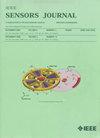Sensitivity Analysis and Performance Tradeoffs in Regression Neural Networks for Magnetic Field Sensing With Rectangular MOS Transistors
IF 4.3
2区 综合性期刊
Q1 ENGINEERING, ELECTRICAL & ELECTRONIC
引用次数: 0
Abstract
This study explores the effectiveness of nonlinear regression (LR) machine learning (ML) models and custom neural networks (NNs) for regression tasks for magnetic field sensing using a rectangular MOS transistor. We focus on sensitivity and average percentage error (APE), comparing various models under controlled conditions with a gate-to-source voltage (基于回归神经网络的矩形MOS晶体管磁场传感灵敏度分析及性能权衡
本研究探讨了非线性回归(LR)机器学习(ML)模型和自定义神经网络(nn)在使用矩形MOS晶体管进行磁场传感的回归任务中的有效性。我们重点研究了灵敏度和平均百分比误差(APE),在控制条件下比较了各种模型,栅源电压(${V}_{\text {GS}}$)为1.2 V,漏源电压(${V}_{\text {DS}}$)为1.8 V,外加磁场为1.4 mT。经验模型建立了5.0%的基线灵敏度,但其不稳定性对可靠的传感器性能构成了重大挑战。相比之下,k近邻(KNNs)、随机森林(RF)和决策树(DT)模型的灵敏度稳定在8%左右。值得注意的是,自定义神经网络的灵敏度最高,约为10%,性能稳定,APE值始终保持在2%左右。分析了均方误差(mse)、平均绝对误差(MAE)和延迟等关键性能指标。结果表明,定制神经网络,特别是较小的体系结构,在平衡精度、稳定性和计算效率方面,为knn和DT等传统模型提供了令人信服的替代方案。这凸显了自定义神经网络在现实应用中增强传感器性能的潜力,在现实应用中,不稳定性会显著影响回归任务的准确性和可靠性。
本文章由计算机程序翻译,如有差异,请以英文原文为准。
求助全文
约1分钟内获得全文
求助全文
来源期刊

IEEE Sensors Journal
工程技术-工程:电子与电气
CiteScore
7.70
自引率
14.00%
发文量
2058
审稿时长
5.2 months
期刊介绍:
The fields of interest of the IEEE Sensors Journal are the theory, design , fabrication, manufacturing and applications of devices for sensing and transducing physical, chemical and biological phenomena, with emphasis on the electronics and physics aspect of sensors and integrated sensors-actuators. IEEE Sensors Journal deals with the following:
-Sensor Phenomenology, Modelling, and Evaluation
-Sensor Materials, Processing, and Fabrication
-Chemical and Gas Sensors
-Microfluidics and Biosensors
-Optical Sensors
-Physical Sensors: Temperature, Mechanical, Magnetic, and others
-Acoustic and Ultrasonic Sensors
-Sensor Packaging
-Sensor Networks
-Sensor Applications
-Sensor Systems: Signals, Processing, and Interfaces
-Actuators and Sensor Power Systems
-Sensor Signal Processing for high precision and stability (amplification, filtering, linearization, modulation/demodulation) and under harsh conditions (EMC, radiation, humidity, temperature); energy consumption/harvesting
-Sensor Data Processing (soft computing with sensor data, e.g., pattern recognition, machine learning, evolutionary computation; sensor data fusion, processing of wave e.g., electromagnetic and acoustic; and non-wave, e.g., chemical, gravity, particle, thermal, radiative and non-radiative sensor data, detection, estimation and classification based on sensor data)
-Sensors in Industrial Practice
 求助内容:
求助内容: 应助结果提醒方式:
应助结果提醒方式:


